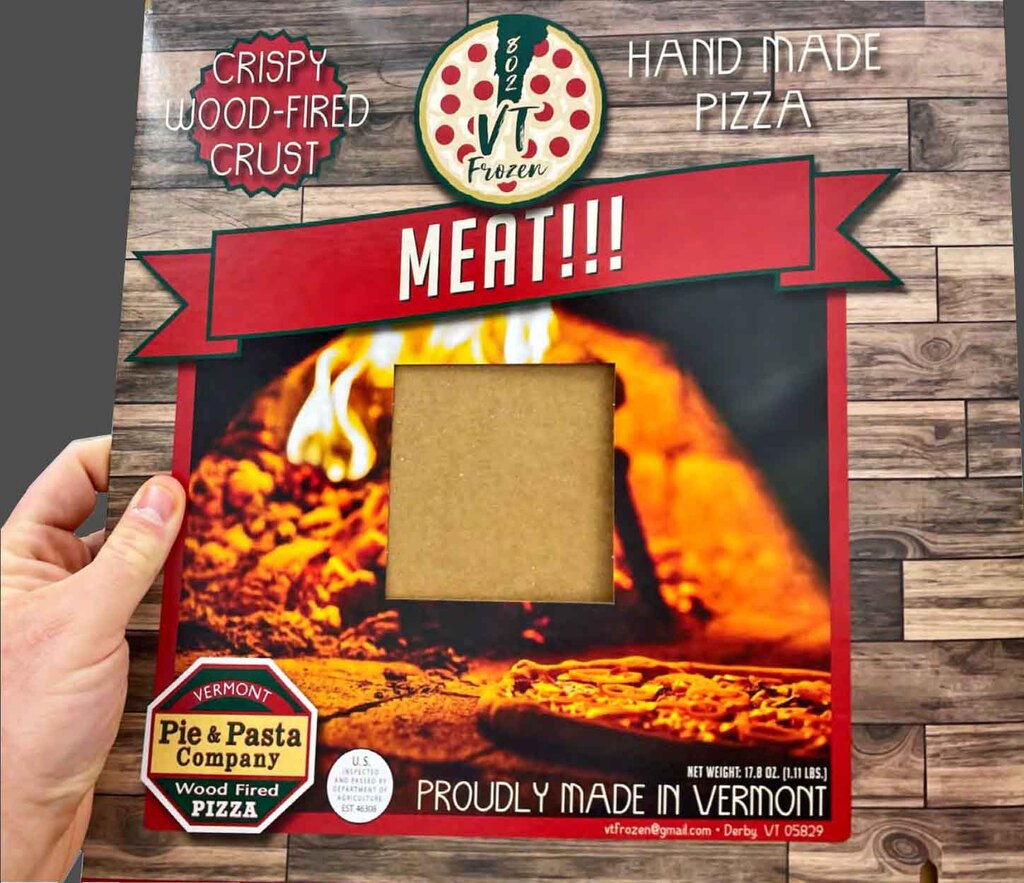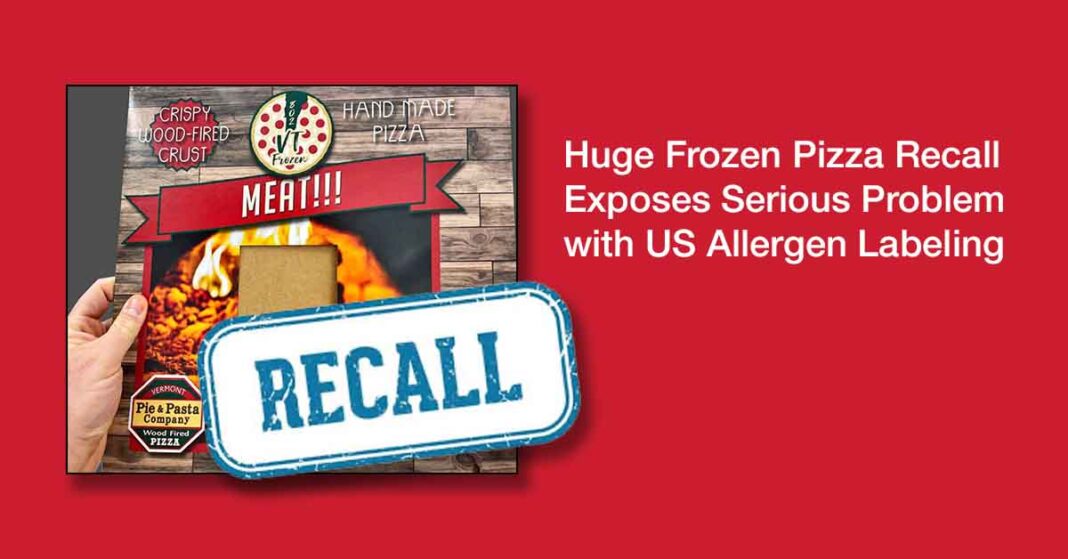The US Department of Agriculture’s (USDA) Food Safety and Inspection Service (FSIS) announced Friday that over 8,000 pounds of frozen pizza had been recalled due to misbranding and undeclared soy.
The pizza sold by 802 VT Frozen was produced from April 25, 2023, through April 25, 2024 with “best if used by” dates from April 25, 2024, through April 25, 2025.

The products subject to recall bear establishment number “EST. 46308” inside the USDA mark of inspection. This product was distributed to retailers and fundraisers in Connecticut, Maine, Massachusetts, New Hampshire, New York, Rhode Island, and Vermont.
The problem was discovered during routine FSIS verification activities. FSIS determined that the product contained soy, which was not declared on the label.
If a family member has a soy allergy, be sure to return the product to the place of purchase.
This recall once again exposes serious issues with US allergen labeling regulations.
We have no idea how long this mislabeled product has been on the market — possibly a full year or longer — and it was only by chance that a periodic FSIS verification discovered the issue. There are likely myriad other mislabeled products that fail to warn of specific allergen content that have not been discovered by the USDA or FDA that remain on store shelves and in freezer cases.
Mistakes in manufacturing happen all the time and go undiscovered until an audit is performed or a report surfaces of numerous people becoming ill.
But that’s not the only issue here. Take a look at the product’s label:

Note that the label bears no precautionary allergen warning like “made in a facility” or “made on equipment that processes soy.” Why? Because those warnings are not recognized by the USDA or FDA and are entirely voluntary: some manufacturers include them, many major manufacturers don’t, and still others will warn for one allergen and not another.
Had such a warning been present on the packaging, consumers with a soy allergy would likely have avoided the product altogether.
The allergic community needs the FDA and USDA to make these warnings mandatory so consumers are alerted to the potential for allergen cross-contact or mislabeling. As it stands now, the only way to know for sure whether your allergen of concern is made on the same equipment is to call the manufacturer. [Side note: apps like Fig and Sifter can’t tell you because they work strictly from the label.]
We offer four simple changes to US allergen labeling regulations that would make food shopping much safer for the allergic community. See them here:






